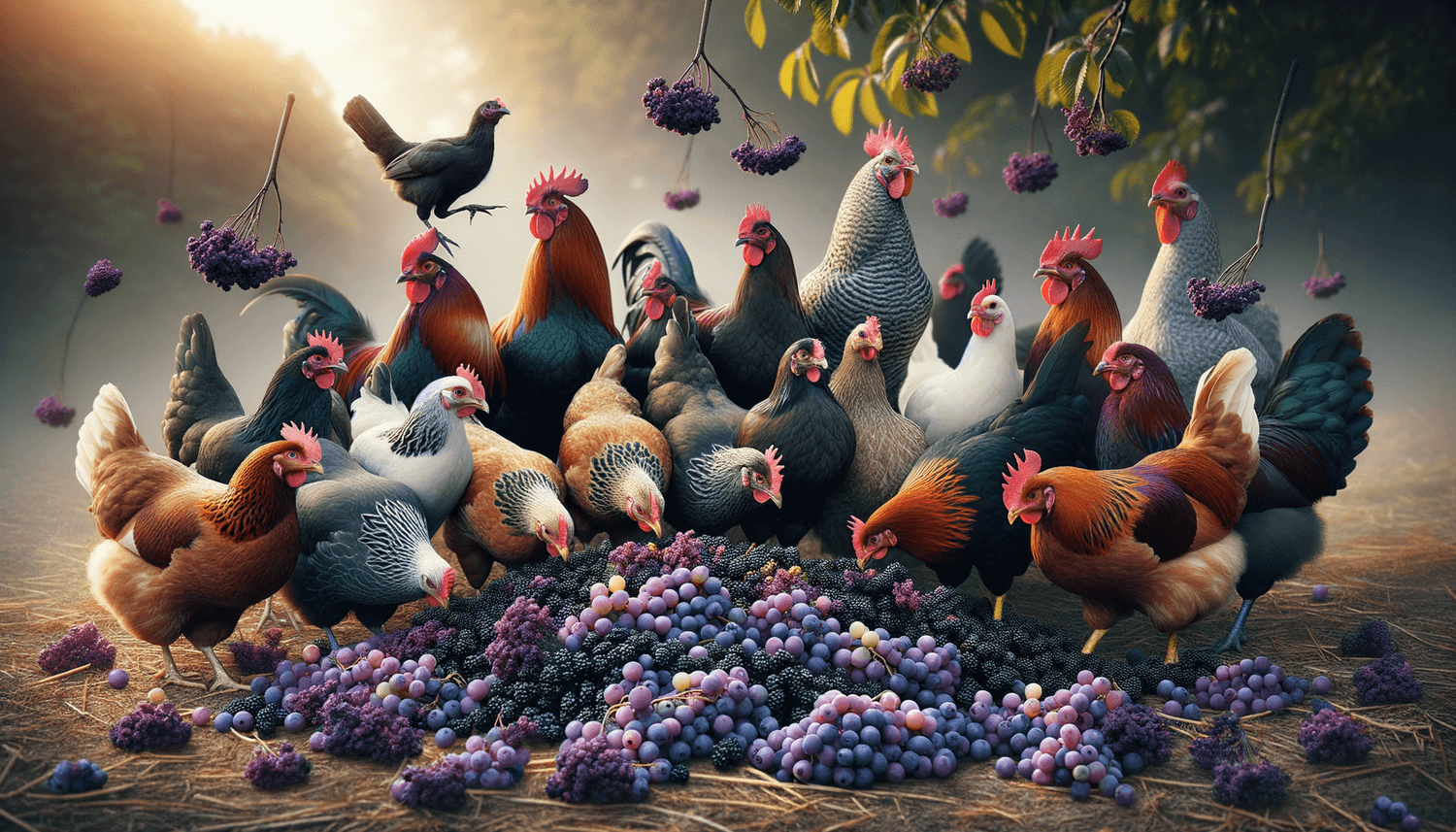Yes, chickens can eat elderberries. These small berries are safe for chickens when ripe and can provide a variety of nutrients beneficial to their diet. However, the leaves, stems, and unripe berries contain compounds that can be harmful, so it is crucial to ensure chickens only consume ripe berries.
Quick Summary
- Chickens can eat elderberries.
- Elderberries are safe when ripe and offer nutritional benefits but should be given in moderation.
- They contain antioxidants, vitamins, and can boost immune health.
- Offer only ripe berries, removing all stems and leaves, and restrict portions to a few berries per chicken to avoid digestive upset.
Overview of Elderberries
Elderberries are small, dark berries that come from the elder tree. They are known for their rich content of vitamins A, B, and C, antioxidants, and dietary fibers. Often used in medicines and food products, elderberries have gained popularity due to their health-boosting properties.
Benefits and Risks of Elderberries for Chickens
Elderberries can be beneficial to chickens by providing antioxidants that support the immune system and help fight inflammation. However, there is a risk of cyanide-inducing glycosides found in the raw, unripe berries, leaves, and stems, which can be toxic to chickens. Only ripe berries should be fed to them, and in moderation to avoid any adverse effects.
Feeding Guidelines
When feeding chickens elderberries, ensure they are ripe and have been separated from all potentially toxic plant parts. The recommended serving size is a few berries per chicken, either fresh or dried, no more than a couple of times per week as part of a balanced diet.
Alternatives
If you’re hesitant about feeding elderberries to your chickens, other safe berry alternatives include blueberries, strawberries, and raspberries, which are also nutrient-rich and typically well-received by poultry.
Expert Opinions
Poultry nutritionists and veterinarians commonly agree that, when properly prepared, elderberries can be a healthy treat for chickens. It’s always recommended to introduce any new foods slowly into their diet and observe for any negative reactions.
Frequently Asked Questions
After learning about the role of elderberries in a chicken’s diet, you may have some questions. Here are the answers to some commonly asked inquiries.
What part of the elderberry plant is toxic to chickens?
The leaves, stems, and unripe berries of the elderberry plant contain cyanogenic glycosides that can release cyanide and are toxic to chickens.
How often can I feed my chickens elderberries?
Elderberries should be given as a treat and not as a regular part of a chicken’s diet. Offer them sparingly, a few times per week at most.
Can chickens eat dried elderberries?
Yes, chickens can eat dried elderberries as long as they were ripe before drying and are free from any added sugars or preservatives.

















